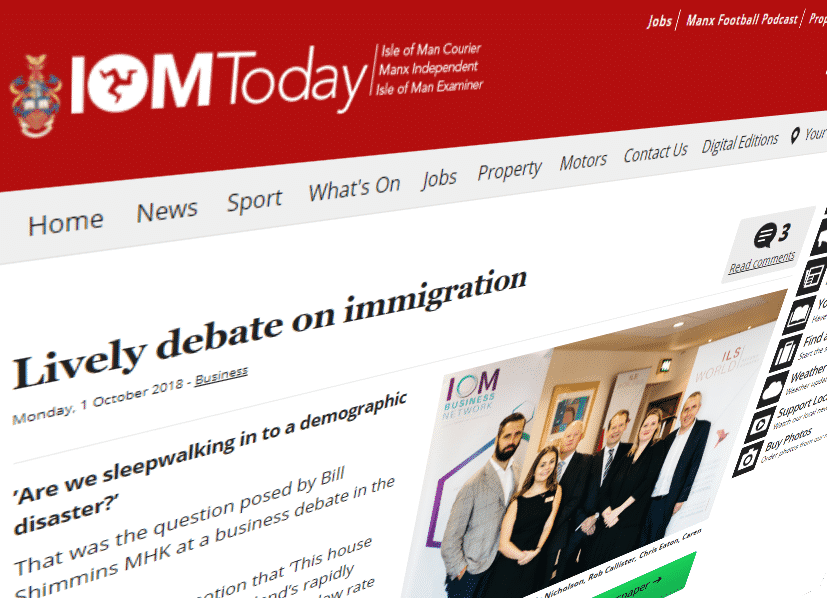The summary
Immigration should be carefully controlled and managed: there’s room to tinker around the edges here and there to improve the processes for the benefit of our community, but we have the right concepts.
My story
I’m one of the most fortunate people in the world: I was born in one of the best countries in the world, and managed to somehow migrate to a better one. Immigration to the Isle of Man has unreservedly made my life better, because it has embedded me in a vibrant community which has welcomed me with welcoming arms.
I’m hopeful to have repaid a little to my community in many different channels: as a worker, I brought skills to the economy that were needed. As a resident, I’ve invested in buying my own home. As an athlete, I’ve played many sports, albeit terribly. As a volunteer, I’ve refereed sports games, delivered food parcels to people in need, and planted trees. As a consumer, I’ve bought a whole lot of wonderful local produce over the years.
Arriving a decade ago
The policy principles

The point here is that under the right circumstances, immigration has the potential to benefit both the migrant themselves (they get the benefit of living in the Isle of Man!) and the Isle of Man (they get the benefit of that migrant contributing to society). But not every migrant would benefit from moving to the Isle of Man, and the Isle of Man would not benefit from every migrant coming here. We need a fair and managed immigration system that is based around a couple of key principles:
- People should be judged on their capability to contribute to the nation.
- People should be judged on the content of their character, and not the colour of their skin.
- We should build a thriving community here on the Isle of Man so that our children aspire to return to the Isle of Man, especially after completing education elsewhere.
The current system
The current work permit and migration system in the Isle of Man does a reasonable job of upholding these policy principles. It is, roughly speaking, based around the right concepts, and thus, I will be a strong voice to retain the concept of the Isle of Man’s current managed migration and work permit system.
That said, some Manx employers have said that employing specialist staff from off-island is too hard, and that the system should be streamlined. Similarly, others have made the argument that since we restrict workers, but have no such restrictions on non-workers, we need to better ensure we are attracting the right balance of migrants.
Further, too often, discussion of the Manx migration system focuses purely on people who would be new-to-Mann. Instead, we have a ready made group of people who already have a seed of love for our island who we should be attracting to our island: The Manx diaspora of children who have moved away. Too many of our children leave the island in search of dynamic and rewarding careers elsewhere, and forget about coming home. We should attract those people to return home to build safe, happy, healthy and well-rounded lives back here on the Isle of Man.
Since work and careers pull many people away on the Isle of Man, that’s got to be the first thing we focus on: allowing dynamic and exciting industries to thrive here on the Isle of Man. Hence, easing the squeeze on the cost of living and focusing on securing jobs must be the first priority of our community going forward.

